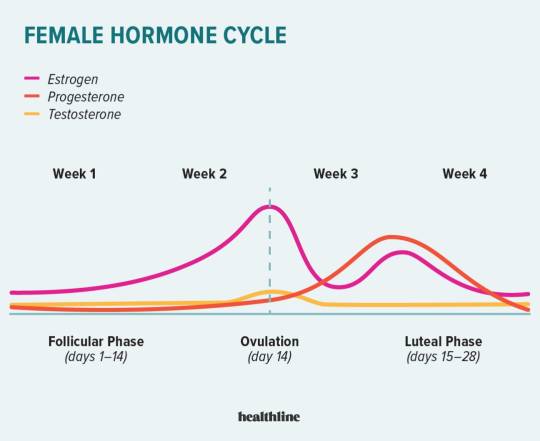#Orthostatic hypotension
Explore tagged Tumblr posts
Text
i see you orthostatic hypotension <3
525 notes
·
View notes
Text
This is your reminder to clean your emotional support water bottle.
Check the o rings for mold.
#dysautonomia#wegotdys#neurodivergent#ehlers danlos problems#ehlers danlos zebra#ehlers danlos syndrome#hypermobile ehlers danlos#orthostatic hypotension#pots#postural orthostatic tachycardia syndrome
2K notes
·
View notes
Text
Hey you with the chronic hypermobility and/or orthostatic intolerance issues
If you have a menstrual cycle, has anyone told you how it affects your chronic illnesses?
Probably not so I'm gonna!
First here's a basic chart showing the large fluctuation in hormones during your cycle:

If you have hypermobile joints, the level of estrogen in your body will heavily impact the stretchiness of your connective tissue. During ovulation, estrogen has a huge spike, which will make you extra stretchy! You are more prone to injuries, subluxations, dislocations, and general joint issues during this time. There's also a smaller increase in the week before your period, which can also affect joint laxity.
If you have orthostatic issues (or even if you don't, tbh), you'll be interested to hear that both estrogen and progesterone affect your heart rate. Generally your resting heart rate will be higher in the days before your period due to rising progesterone levels, and then drop back to normal after your period starts and progesterone levels fall. Estrogen is also at its lowest level during your period, and with low estrogen levels comes a higher number of heart palpitations and potentially a higher heart rate, depending on the person.
This combo of low estrogen and high (and then low) progesterone, plus the whole bleeding thing, means you're extra susceptible to dizzy spells, presyncope, and fainting in the few days right before your period and the first couple days of your period (and if you have a heavy flow, this can continue longer). It also means you might feel a lot more stable, less dizzy, have less heart palpitations etc around ovulation due to the extra estrogen.
There are a bunch of other bodily functions, chronic illnesses, etc that are affected by hormone levels during our cycles, and there are some good resources online about what these hormones do — I didn't even talk about FSH or LH, the two other big hormones that are part of our cycle! But I didn't want to get too far into the weeds in this post.
PS there's a theory that the reason more AFAB people (even many without a uterus or menstrual cycle, AFAB hormones are Kind Of A Bitch) get diagnosed with things like chronic fatigue syndrome, hypermobile disorders w/chronic pain, POTS etc is because we have a built-in flare up every month (sometimes two, if you flare up at both your period and ovulation). So it's just much more noticeable in AFAB people because AMAB folks don't have to deal with those built-in flare ups every 2-3 weeks.
#by the way these hormones affect ADHD and ADHD meds pretty heavily too!!!!!!#hypermobility#hypermobile ehlers danlos#hypermobile spectrum disorder#hypermobile eds#pots#pots syndrome#potsie#postural orthostatic tachycardia syndrome#orthostatic intolerance#orthostatic hypotension#periods#hormones#chronic illness
205 notes
·
View notes
Text
i love floor time (normal blood pressure)
#spoonie#chronic illness#chronically ill#chronic fatigue#chronic pain#disability#cripplepunk#postural orthostatic tachycardia syndrome#pots syndrome#potsie#pots#orthostatic hypotension#blood pressure#dysautomnia#dysautonomia#which one is it
192 notes
·
View notes
Text
I hate that whenever I walk with my cane suddenly everyone is a diagnostician. "Okay but what do you *really* need it for?" Shoving it up your ass if you ask again. Why do strangers feel entitled to my medical information just because they like to browse reddit? My disability is none of their fucking business. They all just watch one episode of House MD and decide they're experts.
#no hate to House MD I fucking love that show#actually chronically ill#actually disabled#chronic disability#chronically ill#chronic illness#orthostatic hypotension
67 notes
·
View notes
Text
sometimes being upright is simply too much to ask of a girl
#haha#lol#funny#but not really#because I’m being so for real#potsie#pots#pots syndrome#dysautonomia#chronic fatigue#postural orthostatic tachycardic syndrome#postural orthostatic tachycardia#my post#orthostatic hypotension#orthostatic intolerance#spoons#spoonie
104 notes
·
View notes
Text
Can someone make the 12 days of christmas but like life with a disability/chronic illness?
Like
🎶On the 12th dr appointment my specialist gave to me:
12 New exercises
11 New referrals
10 Concerning symptoms
9 New prescriptions
8 New labs to run
7 Examinations
6 Expensive bills
5 ���️"ITS ANXIETY"'s✨️
4 Misdiagnoses
3 MORE prescriptions
2 "We don't know what's wrong"'s
And a correct diagnosis if you're luckyyy🎶🎶
#hsd#cane user#hypermobility#mobility aid#disability awareness#orthostatic hypotension#orthostatic intolerance#pots#dysautomnia#christmas#christmassongs#carol#christmas carol#ambulatory wheelchair user#funny#disability memes#chronically ill#chronic illness#chronic pain#doctor
78 notes
·
View notes
Text

Especially the past couple of days. WTF body? Get with the program!
#fibromyalgia#chronic pain#spoonie problems#arthritis#chronic illness#chronic illnesses#fibro#chronically ill#orthostatic hypotension
445 notes
·
View notes
Text
Sometimes when my low blood pressure or low heart rate is flaring up I get this overwhelming urge to go on a ridiculous adventure.
Like I’m barely able to walk and yet it sounds like the most wonderful thing in the world to cook a feast from scratch, drive an hour to the aquarium or volunteer at an animal shelter for a day. Of course I’m not able to do any of this but it’s tricked me in the past and I’ve ended up in some sticky situations. Now I’m able to recognize when it happens by writing it out or texting Hubbins about it bc it really does sound absurd given my current state. Now when I get the sudden urge to do something that is a lot more intensive than my regular activities I immediately “hit the breaks” and evaluate why I feel that way (and it’s never bc I’m actually feeling better). I think my brain is just desperate for a dopamine hit when it’s not getting enough blood flow.
#bad health day#health flare#disability awareness#disabled community#chronic illness community#chronic illness#chronic pain#chronic fatigue#dysautonomia#ehlers danlos syndrome#inflammatory polyarthritis#spondyloarthritis#gastroparesis#postural orthostatic tachycardia syndrome#orthostatic hypotension#low blood pressure#low heart rate#medical alerts#service dogblr
41 notes
·
View notes
Text
Happy Dysautonomia Awareness month. To all people with dysautonomia, i hope your dysautonomia makes you less aware of itself this month.
to all chronically ill and disabled people ever, (gives you so many spoons), here. for these trying times.
also i hope ur able to get a treatment plan that works and doctors that listen. o7
#pots#spoons#dysautonomia#dys-autumn-omia#disability#orthostatic hypotension#vasovagal syncope#familial dysautonomia#pure autonomic failure#multiple system atrophy#Innapropriate sinus tachycardia#autoimmune autonomic ganglionopathy#baroreflex failure#hereditary sensory and autonomic neuropathy#autonomic dysreflexia#diabetic autonomic neuropathy#congenital central hypoventilation syndrome#paroxysmal sympathetic hyperactivity#postprandial hypotension#chronic illness#chronic pain
30 notes
·
View notes
Text
Spoonie tip:
If you have joint pain and/or spend a lot of time suddenly needing to sit on kitchen/bathroom floors, get a couple of those fatigue mats, the dense foam ones. They definitely help.
#from: a spoonie who's currently on the floor. again.#spoonie#chronic pain#chronic illness#postural orthostatic tachycardia syndrome#orthostatic intolerance#orthostatic hypotension#potsie
14 notes
·
View notes
Text
When I meet someone with my condition who is stable and lives a mostly normal life...

#adrenal insufficiency#Chronic Illness#spoonie#chronic pain#chronic fatigue#Dysautonomia#POTS#postural orthostatic tachycardia syndrome#oi#orthostatic hypotension#syncope#neurocardiogenic syncope
151 notes
·
View notes
Text
Not being able bodied is so funny because wdym I’m unable to stand up straight without falling over because I dared tried ✨stairs✨
#disabled#orthostatic hypotension#I have other physical health issues but she’s rearing her head today
13 notes
·
View notes
Text
I finally caved. And by caved, I mean listened to medical advice, your favorite dumbass uses a cane now. It's actually so sick cause I'm able to walk short distances without getting lightheaded way easier


29 notes
·
View notes
Text
Buckle up folks because this is a long post -
Tips for newly diagnosed dysautonomia patients:
- Drink a lot of water (so much water guys. Especially if you have hypovolemic types of dysautonomia, like hypovolemic POTS, it’s crucial)
- Keep up with electrolytes/ salt intake. Vitassium makes salt pills, chews, and tablets. I personally prefer the tablets because I can just suck on them for a while, but I know a few people who prefer the pills.
- Compression socks help, A LOT! One major component of dysautonomia, in general, is blood pooling (which can greatly increase your risk of fainting). The compression/construction helps blood flow and return back to your heart and brain
- Your disability(s) are valid, even if you don’t pass out/pass out a lot!! Only about 1/3 of people with POTS (one of the most common types of dysautonomia) pass out! And of those, few pass out regularly/daily (such as myself). No matter what, you are valid! Even if you’re undiagnosed, even if your case is “mild”, even if you manage it well without much help; you’re valid!
- Especially for those of you who are just being introduced to disability (likely because of long COVID), it’s okay to grieve the life you used to have/planned to have. You can live a wonderful, full life with these conditions (and other conditions), it just may require more accommodations than you anticipated!
- DONT BE AFRAID TO ACCOMODATE YOURSELF! Seriously, use mobility aids, get a 504/IEP, and make your space(s) accessible to yourself! I use forearm crutches for short distances, but because of how severe my dysautonomia is, I’m reliant on a wheelchair (with someone pushing me/motorized aid) to go more than a couple hundred feet/longer (or anything that requires standing for more than 5-10 minutes).
- Get a pulse oximeter or watch! Certain types of dysautonomia may cause lowered oxygen (hypoxia) because of a lack of available blood. It’s extremely important to monitor this and make sure you’re aware of your oxygen levels!
- Find community! I personally love using “stuff that works”. It not only lets you crowdsource for information about medications or treatments, but lets you message other people with the same condition(s) as you.
- If you feel like something is wrong, please talk to your doctor. I know it’s scary, especially if you have medical trauma/PTSD on top of these conditions, but it can literally be lifesaving. I noticed a sudden uptick in chest pain and casually mentioned it to my doctor. Sure enough, we found I have two types of arrhythmias (p-wave inversion and flutters) Now I’m pushing for genetic testing to see if my diagnosed EDS is vEDS/cvEDS
- Don’t be afraid to start and try medications! I’ve tried numerous medications and haven’t found anything that works quite right yet, but that doesn’t mean I won’t :). And some of you may not need medication! You may be able to manage with lifestyle changes, or IV therapy, which is great! Do what works FOR YOU. Everyone is different!
- Rest days are productive! Your body is working really hard to keep you alive, it’s okay to take a break! Take care of yourself, really, it’s okay to conserve spoons.

#dysautonomia#disability#disabilties#disabled#potsawareness#pots syndrome#inappropriate sinus tachycardia#orthostatic intolerance#postural orthostatic tachycardia syndrome#orthostatic hypotension#vasodilator#vasovagal syncope#neurocardiac#ehlers danlos type 3#hypermobilty syndrome#pure autonomic failure#PAF#Familial dysautonomia#panysdysautonomia#neurally mediated hypotension#multiple system atrophy#autoimmune#autoimmune autonomic gangliopathy#autonomic#dysfunctionality#accessibleness#accessibility#accessible posts#long covid#covid pandemic
357 notes
·
View notes
Text
✨️‼️‼️TO ALL MY DYSAUTONOMIA BUDDIES THIS REN FAIRE SEASON‼️‼️✨️
Remember your electrolytes!
WEAR YOUR COMPRESSION SOCKS IM WATCHING YOU!!
Bring a portable salt shaker for food!
DRINK UR DAMN WATER
Sit down when necessary!
Bring your mobility aid (if u have one) SAY IT WITH ME: MOBILITY. AIDS. DO. NOT. RUIN. OUTFITS!
Have fun at Ren faire!!! U got this!!!
#cane user#mobility aid#ren faire#rennaisance fair#rennaissance#cosplay#dysautonomia#dysautomnia#potsawareness#potsie#pots#pots syndrome#orthostatic hypotension#orthostatic intolerance#postural orthostatic tachycardia syndrome
34 notes
·
View notes